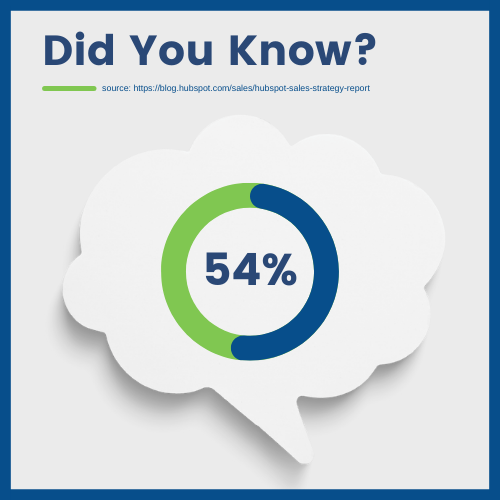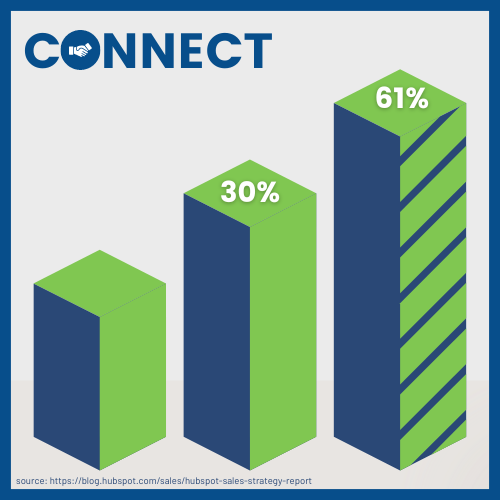A Customer Relationship Management (CRM) system should make your customer and prospect management efforts easier, not more difficult. If you find the latter is true for you – or you don’t even have a system in place, it may be time to consider some CRM spring cleaning or a new addition to the marketing mix.
What should a CRM do? Simply put, a CRM – such as HubSpot, Zoho, SaleForce, Pipedrive or Monday Sales CRM – should track interactions with customers and prospects throughout the sales cycle, help you stay connected to these key audiences, create efficiencies throughout the sales cycle, enhance the flow of information between new business and sales, store all key data on these efforts and improve profitability. If you are in new business or sales, a CRM should help you get to the work that makes an impact, like engagement with customers, instead of spending most of your day sorting through notes, spreadsheets and emails. Just like your garage or any storage area, an unmanaged CRM can get out of control and be less of a time saver and more of a time suck. If this is where you are, we suggest going back to basics by focusing on what your CRM is supposed to do for you.
CRM platforms help us accomplish many tasks, but at their core, they are about relationships. By understanding your primary goal for using a CRM platform – and how your CRM systems should help you better manage customer relationships – you will be able to take the next steps to clean up or replace your current platform.
A CRM System Can Help You Focus on What Matters

Did you know that 54% of salespeople who participated in HubSpot's 2024 State of State Report said selling got harder in 2023?
Focus on The Essentials Your CRM Must Accomplish First
- Centralize data: CRM systems can be used to store customer data in one centralized location, including contacts, interactions (such as emails, phone calls and meetings), purchase history, preferences, permission to email and other relevant details.
- Interaction tracking: CRM systems can be used to track customer interactions across various channels including website, email, social media engagement and phone calls to provide visualization of a customer's journey.
- Automation: CRM systems often give an option to automate tasks such as sending emails, scheduling appointments and generating reports.
- Manage sales pipelines: CRM systems often offer sales pipeline management, tracking leads, forecasting sales or analyzing sales performance.
- Analytics and reporting: CRM systems can also provide customer insights such as customer behaviors, preferences and trends in custom dashboards and reports.
- Integration: Modern CRM systems offer integration opportunities to streamline efforts such as follow up emails, proposals and quotes, social media management, lead-generation, email marketing and even inventory system integration.
A CRM system can be a powerful tool for your business if it is well-maintained and set up to meet your company's needs. After you assess your company goals and make sure your CRM is set to support this effort, it’s time to look at your data to see if cleaning is needed.
Consider your data in the CRM and determine if any cleanup or reorganization is needed for efficiency or to improve customer engagement. Also, it may be time to purge files with no activity or those who are not valid customers or prospects. It is easy to allow sales offers to sneak into your data if your website forms are directly connected to your CRM system. Cleaning up your data will help ensure you’re not wasting time emailing the wrong people. Additionally, many CRM platforms charge based on your number of records, so tidying up your data could save you money.
- Consider deleting records with:
- Duplicate contact entries
- Invalid emails
- Contacts with no reply email addresses – group emails such as info@mycompany.com
- Fake or spammy emails
- People trying to sell you something
- Data errors
- Contacts not active (haven’t engaged with your web or content) for more than two years (we advise two years as many B2B customers have longer term sales cycles)
A CRM System Can Help Connect Your Teams

Only 30% of salespeople who participated in HubSpot’s 2024 State of State Report said their sales and marketing teams are strongly aligned, but 61% said this alignment is more important now than it was last year. This alignment can be attributed to using a CRM system to its complete potential.
Reorganize Your Data for Success
- Consider adding a priority system such as lead scoring to your CRM system to hyper focus your efforts and goals.
- Tagging for better audience targeting can let you send relevant messages to your specific prospects in specific industries or areas.
Take your cue from Marie Kondo if your CRM system isn’t sparking joy currently and tidy up.
Declutter for complete clarity: Just as decluttering your home brings clarity and a feeling of order, cleaning up your CRM eliminates outdated, redundant and irrelevant contact records.
Organize for efficiency: Organizing at home saves time and reduces stress. Similarly, organizing your CRM data saves time and improves efficiency in business operations.
Accuracy: Keep what is working but clear out inaccurate information.
Revitalize: As you re-evaluate your contacts, take this opportunity to re-engage with customers you haven’t heard from in the past several months.
Plan to check in: Just as cleaning is considered a continuous process, so is maintaining a clean CRM. Regularly reviewing and updating your CRM ensures that it continues to support your business goals. We suggest adding this task to your calendar to ensure it doesn’t fall through the cracks. A monthly declutter hour can do wonders for your data.
With a clean CRM and your prospect list re-organized, you are better positioned for success in your upcoming targeted marketing efforts. Ready to add some joy to your marketing efforts? Call us at 281-448-3435 or contact us today.
